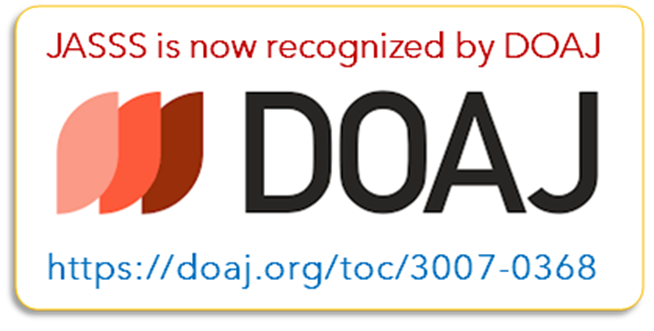An Assessment of Leadership Styles for Organizational Performance:A Case Study of Mika Hotels Lusaka, Zambia
DOI:
https://doi.org/10.5281/zenodo.15374758Keywords:
Leadership Styles & Organizational performanceAbstract
A cross-sectional study explored the influence of leadership styles and employee recognition on organizational performance at Mika Hotels in Lusaka, Zambia. A total of 100 participants from various organizational levels were involved. Data were collected using a semi-structured questionnaire and analyzed through logistic regression using Stata software (version 14.0). The median age of participants was 31 years, with an interquartile range of 26–35 years. Most participants held diploma-level qualifications (53%) and worked in clerical or administrative roles (81%).
The findings showed that situational leadership was associated with a modest, non-significant effect on organizational performance (AOR = 1.05; 95% CI: 0.21–3.77; P = 0.939), indicating no conclusive evidence of its impact. In contrast, employee recognition was found to be strongly and significantly associated with improved organizational outcomes (AOR = 33.14; 95% CI: 2.29–425.58; P = 0.007), suggesting that recognition is a key factor in enhancing organizational success. In conclusion, while situational leadership did not show a significant effect, employee recognition emerged as a critical driver of organizational performance at Mika Hotels.
Downloads
References
ABASILIM, U., GBEREVBIE, D. & OSIBANJO, O. (2019). Leadership styles and employees’ commitment: Empirical evidence from Nigeria. Sage Open, 9, 2158244019866287.
AL KHAJEH, E.H. (2018). Impact of Leadership Styles on Organizational Performance. Journal of Human Resource Management Research, (2018), Article ID: 687849.
BASS, B. M., AVOLIO, B. J., JUNG, D. I. & BERSON, Y. 2003. Predicting unit performance by assessing transformational and transactional leadership. Journal of applied psychology, 88, 207.
BHARGAVI, S., YASEEN, A. (2016). Leadership Styles and Organizational Performance. Strategic Management Quarterly, 487-117.
DE WAAL, A. & MULIMBIKA, T. (2017). A comparative analysis of Zambian governmental institutions using the HPO framework. SAGE Open, 7, 2158244017715672.
DONKOR, F., DONGMEI, Z. & SEKYERE, I. (2021). The Mediating Effects of Organizational Commitment on Leadership Styles and Employee Performance in SOEs in Ghana: A Structural Equation Modeling Analysis. SAGE Open, 11, 21582440211008894.
GOPAL, R. & CHOWDHURY, R. G. (2014). Leadership styles and employee motivation: An empirical investigation in a leading oil company in India. International journal of research in business management, 2, 1-10.
GRAYSON, K., NYAMAZANA, M. & FUNJIKA-MULENGA, P. (2016). Management quality, productivity, and profitability in Zambia. Working paper for the International Growth Centre, London School of Economic ….
HAQUE, A. U., FAIZAN, R., ZEHRA, N., BALOCH, A., NADDA, V. & RIAZ, F. (2015). Leading Leadership Style to Motivate Cultural-Oriented Female Employees in IT Sector of Developing Country: IT Sectors’ Responses from Pakistan. International Journal of Academic Research in Business and Social Sciences, 5, 280-302.
HARB, B., HACHEM, B. & HAMDAN, H. (2021). Public servants’ perception of leadership style and its impact on organizational commitment. Problems and Perspectives in Management, 18, 319.
HUYNH, T. (2021). A study on the effect of transformational leadership on work motivation: A case of employees at small and medium enterprises in Vietnam. Management Science Letters, 11, 41-48.
JING, F. F. & AVERY, G. C. (2008). Missing links in understanding the relationship between leadership and organizational performance. International Business & Economics Research Journal (IBER), 7.
KING, A. (2007). Cooperation between corporations and environmental groups: a transaction cost perspective. Academy of Management Review, 32(3), 889-900.
KLEIN, A.S., COOKE, R.A., & WALLIS, J. (2013). The Impact of Leadership Styles on Organizational Culture and Firm Effective an Empirical Study. Journal of Management & Organization, 19,241-254. http://doi.org/10.1017/jmo.2013.34
LOLA, R. M. & NYANGAU, S. (2018). Effects of strategic leadership on performance of public sector in Kenya: A Case of a sample of public organizations. International Journal of Recent Research in Social Sciences and Humanities, 5, 169-174.
LUFTMAN, J.N. (2004). Managing the Information Technology Resource: Leadership in the information Age. Upper Saddle River, NJ: Pearson Prentice Hall.
MAHDI, O. R., MOHD, E. S. B. G. & ALMSAFIR, M. K. 2014. Empirical study on the impact of leadership behavior on organizational commitment in plantation companies in Malaysia. Procedia-Social and Behavioral Sciences, 109, 1076-1087.
MANKINS, M.C., & Steele, R. (2005). Turning great strategy into performance. Harvard Business Review: 65-72, July –August.
MWENJE, J. & MWENJE, E. 2017. Leadership styles in organizations during harsh economic environments. African Journal of Business Management
MICHAEL, A. (2010). Leadership Style and Organizational Impact.http://www.ala.org
SHORT, J.C., KETCHEN, D.J., PALMER, T.B., & HULT G.T.M. (2007). Organization, strategic group and industry influences on performance. Strategic Management Journal, 28(3), 147-167.
NWOKOCHA, I & IHERIOHANMA, E.B.J. (2015). Nexus between Leadership Styles, Employee Retention and Performance in Organizations. European Scientific Journal, 11, 186-209.
SHORT, J.C, KETCHEN, D.J, PALMER T.B & HULT, T.M. (2007). Firm Strategic Group Influences on Performance.147-167.
ULLAH, A. 2013. Impact of leadership on organizational performance.
WANG, F.J, SHIEH, C & TANG, M .(2010). Effects of Leadership Style on Organizational Performance as Viewed from Human Resource Management Strategy. African Journal of Bursiness Management, 14, 3924-3936.
ZULU, M. T. 2018. An Analysis on the impact of motivating factors influencing Employee satisfaction at Zambia National Commercial Bank. Cavendish University.








